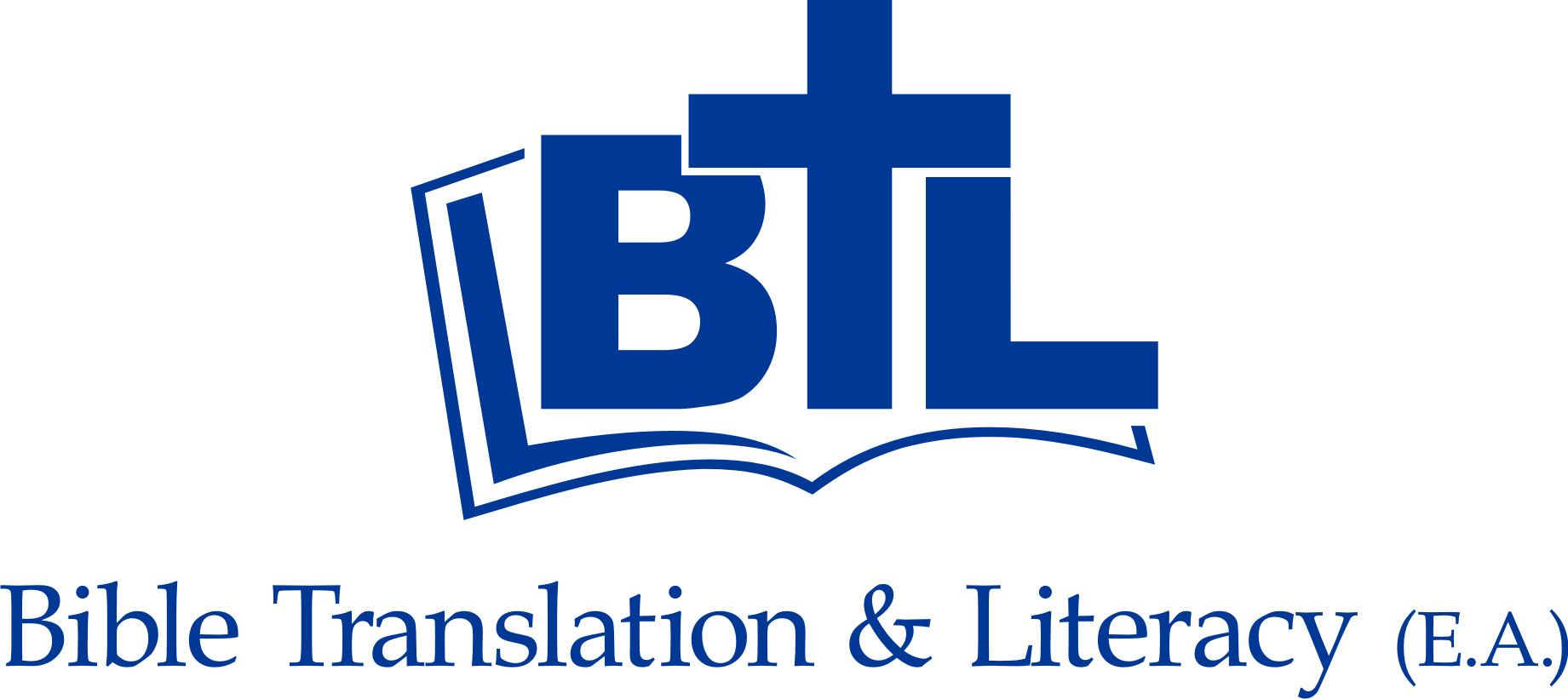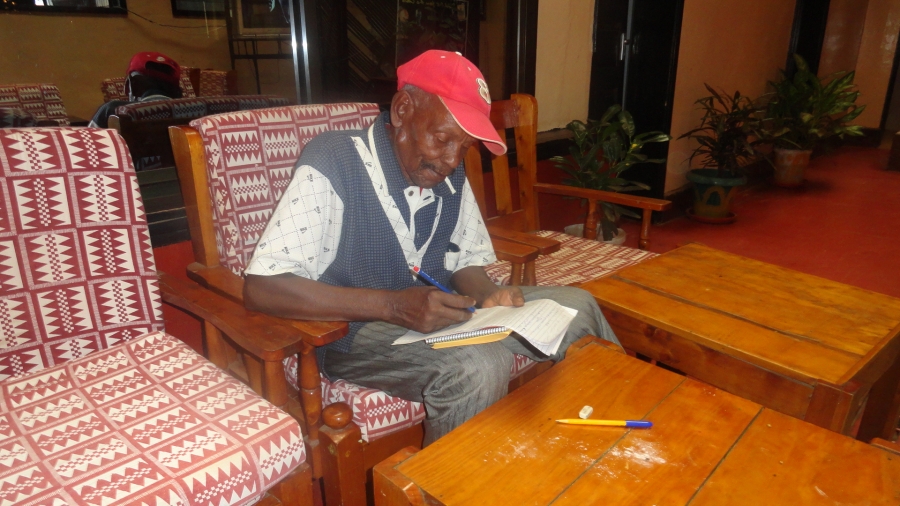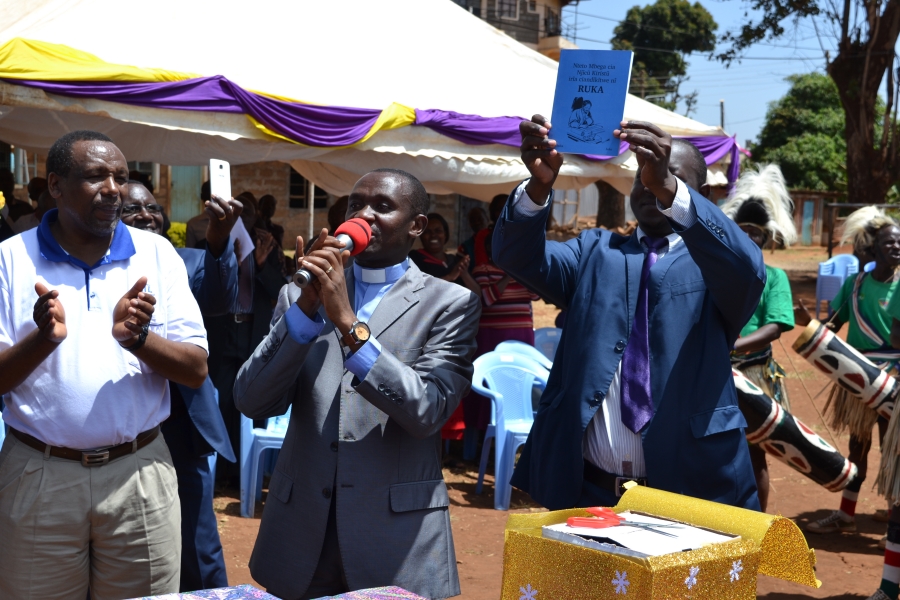Developing a language
Why does a community need their writing system developed?
To help them develop literature in and for their language.The developed literature helps them write materials for their social, intellectual, spiritual and economic needs both for personal and community’s gains.
Can a non- speaker of the language develop a language for a community?
Yes. A linguist can do this with the help of a language assistant from the target community. The language assistant helps the linguist in collecting the required linguistics data from the native language. After the collection is completed, the linguist analyses the words to get the actual sounds. If the linguist is not from the community, he/she confirms the collected and analyzed data with the community members and writes down the findings into a basic phonology of the language. This is then presented in a simplified way to a gathering of a cross section of the language speakers in an orthography workshop. This persentation includes issues to do with the language sounds, dialects, the language’s relationship with the neighboring languages and the trade language among others. The agreement from this meeting forms the first stage of orthography development called tentative orthography. In this orthography workshop, the community with the help of a linguist decides how to represent the sounds of their language for their ownership. If the community members confirm that the collected data to be of their language, they are adopted. If they differ in some ways, the linguist and the linguist assistant goes back to the field to refine there data now with the input from the workshop. These are then shared for verification in subsequent meetings. The other two stages are; working and established orthographies. Working orthography is arrived at after a detailed study of the phonology, which includes morphophonemics, segmentation, consonant clusters, tone and stress. It tests the tentative orthography and the reactions of the stakeholders. Established Orthography involves writing a paper documenting the community’s acceptance of the orthography. At this point the orthography is considered “finished.”
What are some of challenges you face as you develop a language into a written form?
The challenges vary for communities. A challenge in community A may be a strength in community B. Sometime back while collecting words sounds for a bantu community, I realized that they had borrowed word sounds from their Cushitic neighbors. I brought up this issue while presenting my findings during their orthography workshop. This turned out to be a big issue, community members being adamant that the ‘borrowed’ sounds existed in their language. This took quite some of our time and days trying to amicably find solutions.
How do you test a written language in a community that has never seen their language written before?
We use the alphabet chart and written stories, which are developed during the orthography workshop. The testing does not end at the orthography workshops. Other materials developed beyond the workshop act as testing tools for the language, for instance Scripture portions.

What kind of responses do you get from communities when you present them their alphabet with their languages written for the first time?
My first interactions with most communities that I have worked with to develop their languages, are usually inquisitive of my capability to develop such difficult languages as theirs. This narrative changes as soon as I present word sounds during the Orthography workshop. It gets better as we work together in developing their alphabet charts. In the year 2015, while working with the Taveta community, a 90-year-old man wrote an article for their storybook collection using the alphabets we had developed. He could not imagine that his language could be in a written form; him being at the forefront.
What current projects are being worked on?
Sengwer and Kabarasi projects. The two communities are at the tentative stages of orthography development and their alphabet charts are presently being printed to be distributed to the community for testing.
Does development of a language come to end?
Yes and No. This is an on-going process and only comes to an end if the initial need for it has been met. As a linguist, I do further researches in order to write papers on the grammar of the language.




 He used the Gichuka Book of Luke in his sermon. After that sermon, several people who listened to his teachings came and told him, “Your sermon was very powerful. Keep using our language.” Some of them accepted Christ. He realized that the reason why people attended his service once, and they never returned was due to language barrier. He had thought that preaching in a foreign language was some ‘swag’ or sophistication. Ever since, he only uses his mother tongue, Gichuka, in his preaching. “I have learnt to keep my sermons simple,” Concluded the Pastor.
He used the Gichuka Book of Luke in his sermon. After that sermon, several people who listened to his teachings came and told him, “Your sermon was very powerful. Keep using our language.” Some of them accepted Christ. He realized that the reason why people attended his service once, and they never returned was due to language barrier. He had thought that preaching in a foreign language was some ‘swag’ or sophistication. Ever since, he only uses his mother tongue, Gichuka, in his preaching. “I have learnt to keep my sermons simple,” Concluded the Pastor.